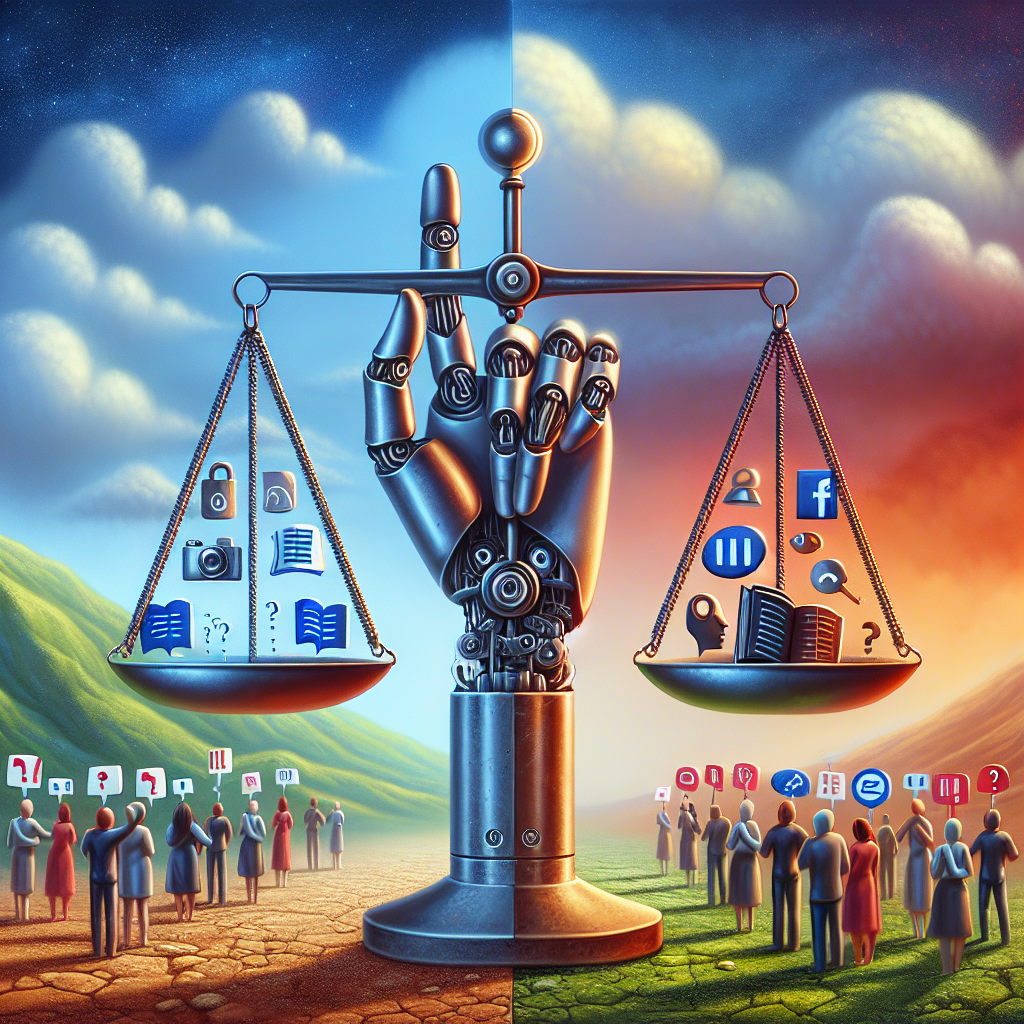The Ethics of AI in Content Moderation and Censorship
In today’s digital age, the internet has become a hub for information sharing and communication. With the rise of social media platforms and online forums, users have more opportunities than ever to express their thoughts, opinions, and ideas. However, this increase in content creation has also led to a surge in harmful and inappropriate content, such as hate speech, fake news, and graphic imagery.
To combat this influx of harmful content, many online platforms have turned to AI technology for content moderation and censorship. AI algorithms are used to automatically detect and remove content that violates the platform’s community guidelines, saving human moderators time and resources. While AI has proven to be an effective tool in content moderation, it also raises ethical concerns regarding censorship, bias, and privacy.
Ethical Considerations in AI Content Moderation
One of the primary ethical considerations in AI content moderation is the issue of censorship. AI algorithms are programmed to detect and remove content that violates a platform’s community guidelines, but there is a fine line between removing harmful content and restricting freedom of speech. Critics argue that AI algorithms may be too aggressive in their censorship efforts, leading to the suppression of legitimate speech and opinions.
Another ethical concern in AI content moderation is bias. AI algorithms are trained on large datasets of labeled content, which can reflect the biases of the data sources. This can result in the algorithm making biased decisions when moderating content, such as disproportionately targeting certain groups or viewpoints. For example, a study found that AI algorithms used by social media platforms were more likely to flag posts from Black users as hate speech compared to posts from white users.
Privacy is also a major ethical consideration in AI content moderation. AI algorithms often rely on data collection and analysis to make decisions about which content to moderate. This can raise concerns about user privacy and data security, as users may not be aware of how their data is being used to moderate their content. Additionally, there is a risk that AI algorithms may accidentally disclose sensitive information while moderating content, leading to privacy breaches.
Balancing AI with Human Moderation
To address these ethical concerns, many online platforms have implemented a hybrid approach to content moderation, combining AI algorithms with human moderators. Human moderators can provide context and nuance to content that AI algorithms may miss, helping to reduce the risk of biased or unfair censorship. Additionally, human moderators can review flagged content and make decisions based on a platform’s community guidelines, ensuring that content moderation is done in a fair and transparent manner.
However, human moderation also has its own set of ethical considerations. Human moderators may bring their own biases and prejudices to the moderation process, leading to inconsistent decisions and potential discrimination. To mitigate this risk, platforms must provide comprehensive training and guidelines to human moderators, ensuring that they are equipped to make fair and impartial decisions.
Frequently Asked Questions:
Q: How do AI algorithms decide which content to moderate?
A: AI algorithms use a combination of natural language processing, machine learning, and deep learning techniques to analyze text, images, and videos for harmful content. The algorithms are trained on large datasets of labeled content, which helps them identify patterns and trends in harmful content.
Q: How can platforms ensure that AI algorithms are not biased?
A: Platforms can reduce bias in AI algorithms by diversifying the datasets used for training, regularly auditing the algorithms for bias, and providing transparency into the moderation process. Additionally, platforms can implement bias detection tools to identify and correct biased decisions made by AI algorithms.
Q: What are the implications of AI content moderation for freedom of speech?
A: AI content moderation can have implications for freedom of speech, as algorithms may inadvertently censor legitimate speech and opinions. Platforms must strike a balance between moderating harmful content and allowing for open discourse, ensuring that their moderation practices align with principles of free speech and expression.
Q: How can users protect their privacy while using platforms with AI content moderation?
A: Users can protect their privacy by carefully reviewing a platform’s privacy policy and settings, limiting the amount of personal information they share online, and using privacy-enhancing tools such as VPNs and encrypted messaging apps. Additionally, users can report any privacy concerns to the platform for investigation.
In conclusion, the use of AI in content moderation and censorship raises important ethical considerations regarding censorship, bias, and privacy. While AI algorithms can be effective tools for detecting and removing harmful content, they also have the potential to infringe on freedom of speech and privacy rights. Platforms must strike a balance between using AI algorithms and human moderation to ensure that content moderation is done in a fair, transparent, and ethical manner. By addressing these ethical concerns, platforms can create a safer and more inclusive online environment for all users.

